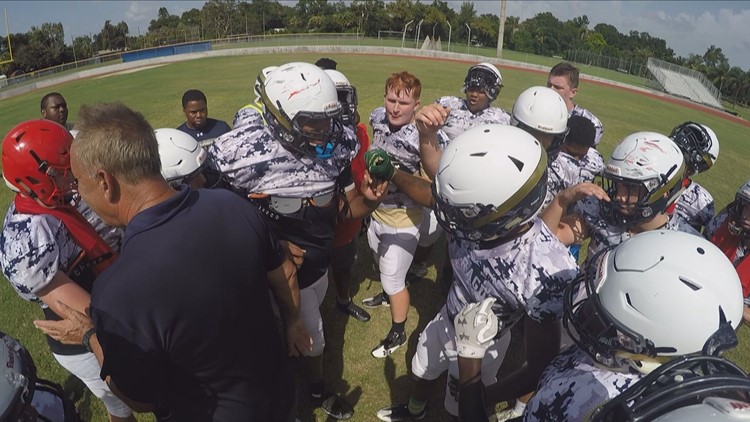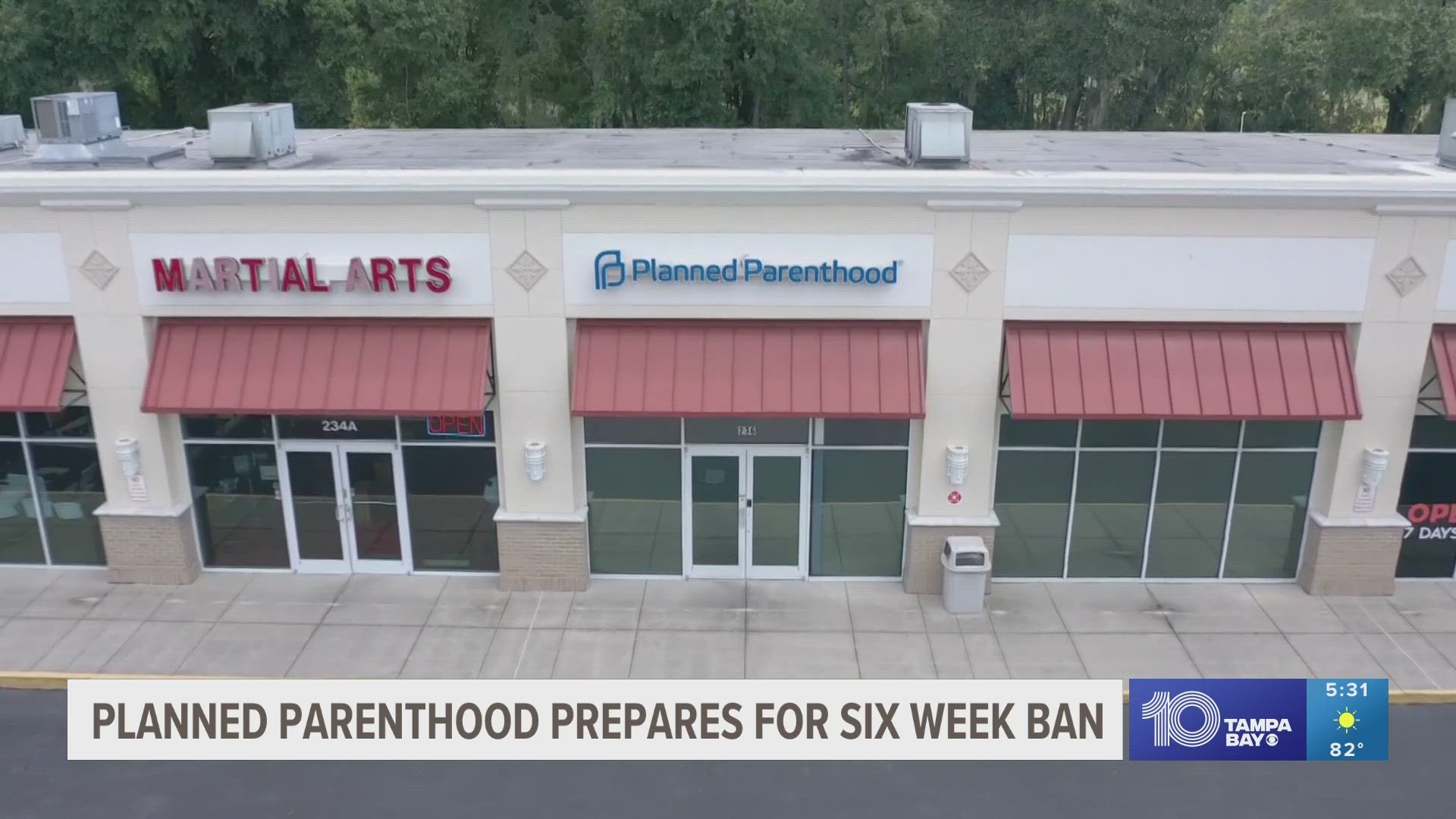10News is "Tackling Concussions"; watch part 1: A proud dad watches his son play football, even after concussions led to Parkinson's
ST. PETERSBURG, Fla. -- While researchers in Tampa Bay work to study the effects of concussive and sub-concussive hits on the brains of high school athletes, thousands of other kids continue to play contact sports every day across the United States.
Football has a bad reputation when it comes to contact sports and concussions, but athletes involved in any sport -- from swimming to golf to soccer to wrestling to cheer squad -- are at risk.
Tyler Bews suffered a concussion playing baseball during his senior year at Dunedin High School. The hit ended Tyler’s playing career.
“It was just a timing play, like I got the ball and he met me at the same time,” Bews said. "Right then and there, I felt a little bit of dizziness and the ear ringing, and then later that night is really when it kind of set in.
"That morning, I was a completely different person the next morning. I woke up, I wouldn’t talk. I tried to sleep all day and I’m not like that, I never sleep.”
Let's go back to the tape
Dr. Ted Farrar treated Bews in the days following his concussion and was able to analyze video of the collision to help understand the hit.
“Fortunately, here in this part of Florida, there’s a lot of game tape from the teams and often times you can go back to the video and see where the event happened,” Farrar said. The doctor is the director of the University of South Florida-Morton Plant Mease Primary Care Sports Medicine Fellowship.
All that game tape helps with much more than just X’s and O’s; it also gives critical insight into player safety and where a concussion might have occurred. Tyler recovered quickly from his concussion, in part, because he and his family did everything right in the days that followed.
One common mistake parents make, according to Farrar, is rushing to the hospital right after a concussive hit.
“After a kid has a concussion, the first thing everybody needs to do is take a deep breath and not get overexcited,” he said. “The vast majority of these concussions are things that are going to be managed after the game in the succeeding days.”
In 2012, the Florida High School Athletic Association became one of the first state high school associations in the county to adopt a comprehensive concussion protocol and return to play policy. That policy includes immediately removing any player suspected of having a concussion from play and having them evaluated and cleared by an appropriate healthcare professional.
Thousands of concussions, just locally alone
“Football is the most popular sport in our country and does have the most concussions, but we see concussions from soccer, we see concussions from diving, we’ve seen concussions in gymnasts and cheerleaders as well,” said Dr. Patrick Mularoni, Medical Director of the Sports Medicine Division at Johns Hopkins All Children’s Hospital in St. Petersburg.
Mularoni’s program has seen more than 3,000 concussions in the last five years.
“The real risk is in that high school age group, they’re the ones that tend to suffer the most,” he said. “We’re trying to learn more about those kids that do get concussions, but more so we’re trying to learn more about the kids that don’t get concussions to determine whether or not it’s actually safe to be playing if you’re not getting concussions.”
“Being a concussion doctor, it’s very interesting because we’re learning more and more about concussion every day and there’s a lot that we don’t know,” Mularoni added. “We’re not sure how hard a hit it would take to cause a concussion, where that hit comes from or what the effects of multiple hits are.”
What experts do know is that once a child sustains a concussion, they are immediately at higher risk to get another.
“If a child has had multiple concussions, say more than three, you are, I think the evidence is somewhere around eight-to-nine times more likely to have a complicated return as well as an increased sensitivity to receiving a concussion,” Farrar said.
And it’s that type of statistic that helps Bews sleep at night despite giving up the game he loves.
“I just don’t want to get another concussion,” Bews said. “I feel like that’s a big reason why I decided to stop playing because I feel like the next one might have an even greater effect on me.”
►Make it easy to keep up-to-date with more stories like this. Download the 10News app now.
Have a news tip? Email desk@wtsp.com, or visit our Facebook page or Twitter feed.



